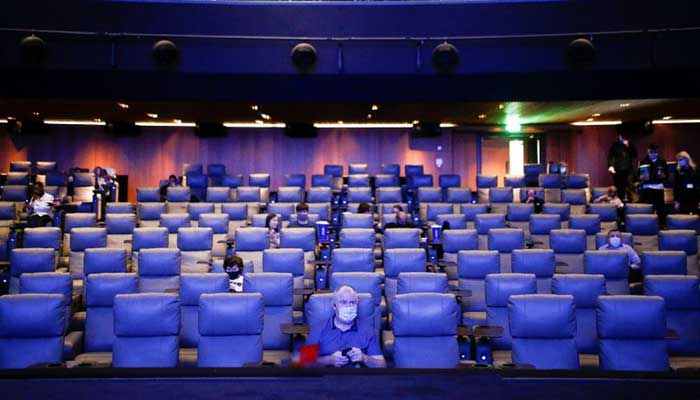Lights, camera.. anyone? Film studios can't get the crew
"Set directors and designers have to be smarter about shooting angles," said Chief Executive Gyorgy Rajnai.
November 24, 2021

PRAGUE: Hollywood flocked to central Europe during the pandemic when film producers there were allowed to keep the cameras rolling, making the region an irresistible draw for streaming giants captivated by castles and tax breaks.
Now, though, some production companies may have bitten off more than they can chew as the region, one of the world's biggest hubs, has enjoyed a record leap in new U.S. movie and television business to about $1 billion this year.
They, like many peers globally, are struggling to find enough qualified staff to keep pace with the huge appetite of clients like Netflix, Amazon and Apple vying with each other to deliver new content and feed consumer demand turbo-charged by lockdowns around the world.
Even Hungary's state-of-the-art Korda Studios, a giant of the sector with one of the world's biggest sound stage, told Reuters it was focusing on fewer shows and movies to maintain quality. And it has had to come up with imaginative ways to do more with less.
"Set directors and designers have to be smarter about shooting angles," said Chief Executive Gyorgy Rajnai. "Now we build a house with three sides instead of four. We save on resources, time and people."
Korda is also importing camera and set-construction crews from countries like Slovakia, Romania, Croatia, he said.
Other production companies are hiring less experienced staff and in some cases turning down new work altogether, according to interviews with several industry executives and workers.
"Either we can pick up the crew or we say no to the project. It is green light or red light," Rajnai added. "It is the bottleneck in the industry."
The challenges in the region, which has recently hosted the likes of sci-fi movie epic Dune and Amazon fantasy series The Wheel of Time, reflect a shortage of skilled production workers across the world, from Hollywood to Queensland.
Jonathan Olsberg, executive chairman of London-based film industry consultancy Olsberg SPI, expects global production spend on feature films, television series and documentaries to race back to the pre-pandemic level of $177 billion in 2022.
"This is a fundamental global problem and we will be experiencing these shortages for years to come," he said.
Central Europe has also long had skills shortages across many industries. A tight labour market - the Czech rate of 2.8% ranks as the lowest in Europe, for example - makes it difficult for some companies to find workers and specialisms.
Pavlina Zipkova, head of the Czech Film Commission said the skills shortage in the country's film production industry was acute, though there are no specific estimates.
"There is pressure on national film commissions and film institutions as well as on local studios and film production companies," Zipkova told Reuters.
Netflix, Amazon and Apple declined to comment on production staff shortages in the region and the possible consequences.









